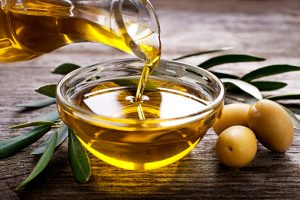
Research attributes the many cardiovascular benefits of olive oil to hydroxytyrosol, a natural compound that is a powerful antioxidant. The study has shown that hydroxytyrosol also offers protective effects to the liver, which is not at all surprising, considering that the heart and liver share a common enemy: a high-fat diet. (When your liver’s healthy, so are you.)
Olive oil is good for the liver too
To evaluate the effects of hydroxytyrosol, the researchers fed mice either a high-fat diet (60 percent fat) or a control diet (10 percent fat). Some mice were also given five mg of hydroxytyrosol per kilogram of body weight over the course of 12 weeks. Blood and tissue samples were used to assess the impact of the diet on the composition of fatty acids, on the activity of enzymes that participate in the synthesis of polyunsaturated fatty acids (known for warding off bad cholesterol and supporting heart health), and on oxidative stress.
As expected, a high-fat diet raised the levels of total cholesterol and bad cholesterol, but the effects of the latter were counteracted by hydroxytyrosol in the mice that were given it. Hydroxytyrosol also reduced markers of insulin resistance, which is regularly brought up by an unhealthy diet. (Your liver is the ‘missing link’ to feeling younger and stronger.)
And the great news is, hydroxytyrosol has shown promising results for the liver. A high-fat diet leads to lower levels of the liver enzymes that are associated with an imbalance of fatty acids in the liver, brain, and heart. Mice that were fed fatty foods had signs of non-alcoholic liver disease, and their livers were marked by increased oxidative stress, which is linked to fatty liver disease as well. However, mice that took hydroxytyrosol demonstrated fatty acid composition and enzyme activity comparable to mice on a healthy diet, implying that the compound can reverse the damage of a high-fat diet.
You may be asking yourself how you can eat more olive oil. Gulping down shots of oil may not be for everyone. Once you move past using olive oil for cooking and baking (excellent starting points already), you can get really creative and use it in other meals. Trade that high-calorie salad dressing for a couple tablespoons of olive oil and some lemon juice. Make your own bread dip by mixing olive oil with balsamic vinegar and some roasted garlic. Make your own mayo or pesto—you will need olive oil there too. Play around with ingredients, and get the most out of this Mediterranean health secret—for your heart and your liver too.
Related: How Olive Oil Helps Aging Skin